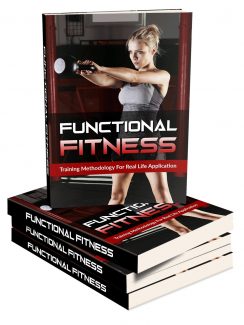 License Type: Master Resell Rights
License Type: Master Resell Rights  File Type: ZIP
File Type: ZIP
 SKU: 62659
SKU: 62659  Shipping: Online Download
Shipping: Online Download
Sample Content Preview
Introduction
When you say the word health, you are referring to the wellbeing of yourself or others. So naturally, health becomes a personal matter especially when it revolves around your own health. Everyone wants to be in better health which is again a very natural impulse.
The first and easiest things you can do to better your health is to eat properly and work out routinely. Eating properly can be dieting and monitoring what comes into your kitchen. Working out, on the other hand, can be somewhat trickier.
Working out doesn’t mean you have to become a bodybuilder or weightlifter though those are possible achievements to gain from working out. It could simply mean you want to maintain a certain weight or keep your body moving properly and functionally. In such cases, to maintain proper health you don’t need dumbbells and treadmills, only a functional fitness routine.
Chapter 1
What is Functional Fitness?
Functional Fitness Defined
You may not have heard of the term functional fitness before reading this, but the truth is that functional fitness is all around you. Functional fitness refers to a type of fitness where you keep your body moving in simulated routines that resemble everyday tasks.
Now, most people imagine working out as this fantastical imagery where you have a solid core and large protruding biceps that bulge every time you lift weights. This image is one that’s better to burn. Not everyone can live this fantasy and in most cases, it’s unrealistic and impractical. It’s more difficult to maintain a bulky, muscular physique than a normal one, and not many people are aiming to become a PRO bodybuilder.
An easier and more reasonable way to maintain a fit figure is by sticking to simpler goals. What most people want is to be able to perform with the most practicality on a daily basis. To ensure this, drop the weights and stick to more natural movements. This is where you’ll resort to functional fitness.
With functional fitness, you’ll be doing squats, lunges, stretches, and pumps that are closer to home. All of these movements will resemble the actions you do in everyday life.
Take lunges as an example. Lunges are the movement of stretching out and bending your leg. Though you’ll never be found walking in this cycle, it’s imitating the movements you make in more extreme cases. Going up the stairs and running use the same actions as walking does, but with more strength and power. By doing lunges, your muscles and joints become accustomed to the strong pull and strain and therefore perform more effectively as you run.
As you grow older, you may have found that your body can’t do the same things as it used to. It’s alright since this happens to everybody. Unfortunately, the more lethargic you become, the faster this will happen to you. So it’s better to get up and get moving in any way that you can.
Functional Fitness can be performed anywhere at any level of difficulties. For instance, you can even use your own body weight to perform the exercises without using any gym equipment. As long as you’re moving in a way that can benefit your body, you’re doing some kind of functional fitness. It’s better than lifting the heaviest weights and then snapping when you’re trying to load groceries into your car.
Complimenting Functional Fitness with Your Lifestyle
As mentioned earlier, hoping for the perfect 10 out of 10 body is unrealistic and quite impractical. The basic aim should always be maintaining a healthy body you as a person are satisfied with.
Being fit is only an extra benefit to yourself. That said, your exercises shouldn’t interrupt your schedule, but rather flow inside of it. Once it becomes a problem to find time for your workout, a red flag should signal in your mind. Here are some tips to keep in mind when crafting a workout routine that works for you.
Firstly, it shouldn’t take long at all. A 15 to 25-minute routine is enough to make a difference, so long as you’re implementing this workout every day. You don’t need anything that hard, just simple repetitive movements to properly pump your muscles. Your short workout can be early in the morning or after your busy day.
Typically, it’s better to work out before you start your day’s work, otherwise doing anything at the end of the day will tire you out more than you’d usually be. You can also develop intense strain and pain if you remain idle for too long after a workout.
Another idea is to spread out your workouts through the week. On days you’re working, work out for only 15 minutes and on weekends or holidays, work out for 20-25 minutes. This way you won’t tire yourself out when you have other things to do. Any system that suits your schedule is fine, so long as you’re getting the essential minimum of 15 minutes.
When you start out, keep all of your moves minimalistic. Nothing too extravagant that’ll pull your muscles before you’ve even used them. No weights in the beginning. They will strain your muscles far too quickly. Once you’re used to the burn from simpler workouts, you can apply small two or three pound weights. Never start out big, as it’s unhealthy, unrealistic and impractical.








